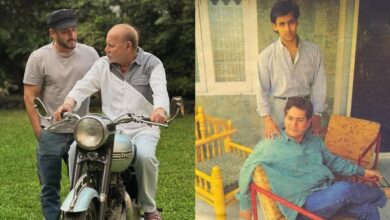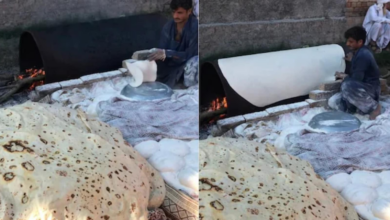Independence Day 2022: Hansal Mehta, Rakeysh Omprakash Mehra on what it means to show patriotism on screen in India today

Chest-beating jingoism or an inward-looking expression that encourages reflection? Patriotism in Indian cinema has been showcased across both ends of this spectrum. As we celebrate 75 years of our independence, we talk to two filmmakers who have absorbed the idea and presented it through their works, celebrating freedom in all its glory. Rakeysh Omprakash Mehra and Hansal Mehta talk about what freedom means to them, the idea of patriotic cinema and how it has been presented in India over the decades.
Hansal, whose last work was the segment Baai in Modern Love: Mumbai, is now working on a web-series based on Mahatma Gandhi’s life and struggle. The director says more than trying to focus on patriotism in his work, he tries to be true to the stories.
Patriotism in cinema
Emphasising on the importance of judgement-free representation of his characters and topics, he said, “I don’t know what it means to show patriotism on screen today. At least I don’t set out to do so. For me it is looking at India, which is so diverse and multicultural, like a potpourri of several religions and castes. So, for me it is to look at all this and present India in all its form without being judgemental, for me that is being patriotic. It is about representation, and telling stories for love and understanding.”
“I don’t have a process, I don’t set to make films with patriotic stories. It is about me telling stories, and within those stories it’s my own conviction and the understanding of the country that we live in, is what is represented in my stories, and that’s all,” he added.
Filmmaker Rakeysh Omprakash Mehra, the man behind Aamir Khan’s Rang De Basanti, a quintessential youth-centric patriotic film whose message was to be the change that you want to see, says he never understood how to show patriotism on screen. “It is about telling a story that you deeply feel about. It would be sitting on a very high horse if I try to explain what it means. I don’t think I or anybody else has the capacity to give an absolute answer to that; it is all pretty relative. It is what and how you feel at that point of time and then a story, and that your belief comes out in your stories. So, patriotism, for me, is a very personal expression and yet a very collective kind of a thinking. For me, it’s always been the expectation of one human being over another.”
India, through a critical lens
Hansal says creating content that makes one think critically about their country is of utmost important to him. He said, “From time immemorial, many filmmakers have adapted their belief systems to a more popular ideology of the time and they’ve represented that through their stories. There is a rare time when there is a critical look. I think patriotic films should be those which not only promote and glorify our nation and its culture but also take a critical look at the nation, at the state of the nation, critically look at the past 75 years. I feel, as a storyteller, a filmmaker, it is my duty to hold a mirror the way I see things, to tell stories the way I see it, if they’re critical, so be it. I think I owe it to my country, to my people to also be critical as I owe it to them to glorify, to promote, to disseminate love for the country.”
Hansal’s lens has almost always focused on topics of inclusion, secularism and acceptance. His empathetic tone has always shone bright, and he has consciously stayed away from stories that are chest thumping. On being asked why he chooses that tone, he says, “It is because I am not trying to make any judgement about either side, or about anything. My films are a truthful and empathetic representation of the characters and the stories, and they’re a representation of the times that we live in. They are not meant to sensationalise or to offend anyone. I drive myself to be sensitive about people whose stories I’m telling. In that, even if I am critical, my criticism of the system is with an empathetic lens with a view to see a change, the desired change, and that is represented in my films. I want injustice and inequality to be addressed in our country. I want social justice to be respected in our country, so that’s the way I tell stories, and my bit of patriotism.”
State of nation
On being asked what he thinks about the changing tone of most popular films today, with shades of patriotism and national themes, Mehra states that the present scenario our films are just reflecting the society.
He says, “I think stories keep changing, evolving; they keep reflecting the times we live in, our society. If you’re the voice that you have in your films remains relevant down the ages. It is definitely not about a particular regime or another regime, or the political system, it is potentially about how it has been and how it should be, for the longest time.
Hansal regularly faces abuse on social media for his political ideology. Does the kind of abuse he faces on social media hamper his filmmaking, does it make him fearful? Agreeing that it does take a toll, he says, “Sometimes, yes, you do get concerned with the kind of hatred and the kind of language that is used freely, the language of threat, the language of abuse. But this is the world we’re living in today and like they say, ‘if you cannot take the heat, get out of the kitchen’, so I’d rather take the heat and do what I do best and continue doing it.”
However, Mehra has a different thought process, and thinks this is the best time to tell stories about the country that engage all, because “today’s youth is well aware.”
He says, “For me, today, it is the best time to tell stories. The youngsters are far more informed because of the technology and connectivity, because of the information they have. The flip side is the misinformation they have. So, definitely the audience has evolved because they have an access to what’s going around the world. So, there cannot be a more beautiful time than this to tell stories that connect and which have the idea of patriotism.”






